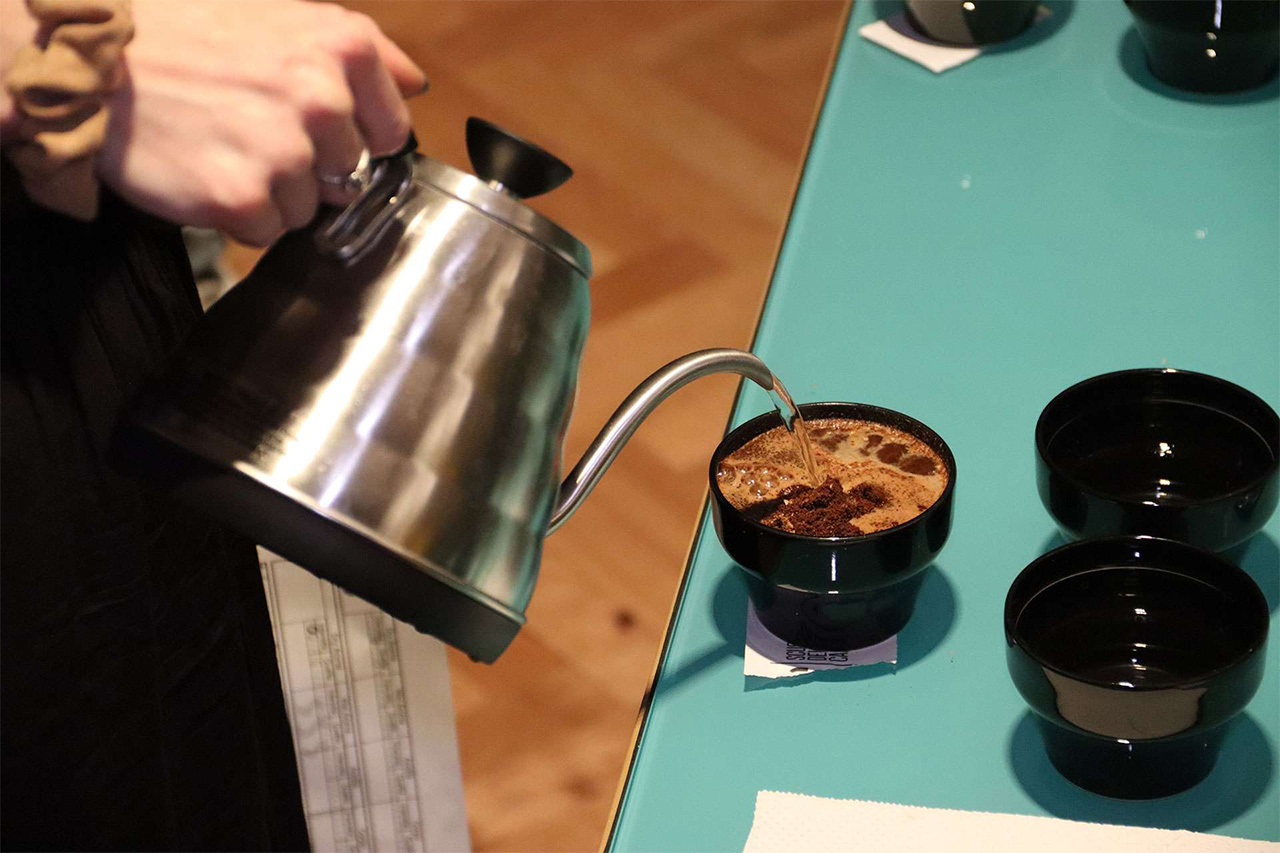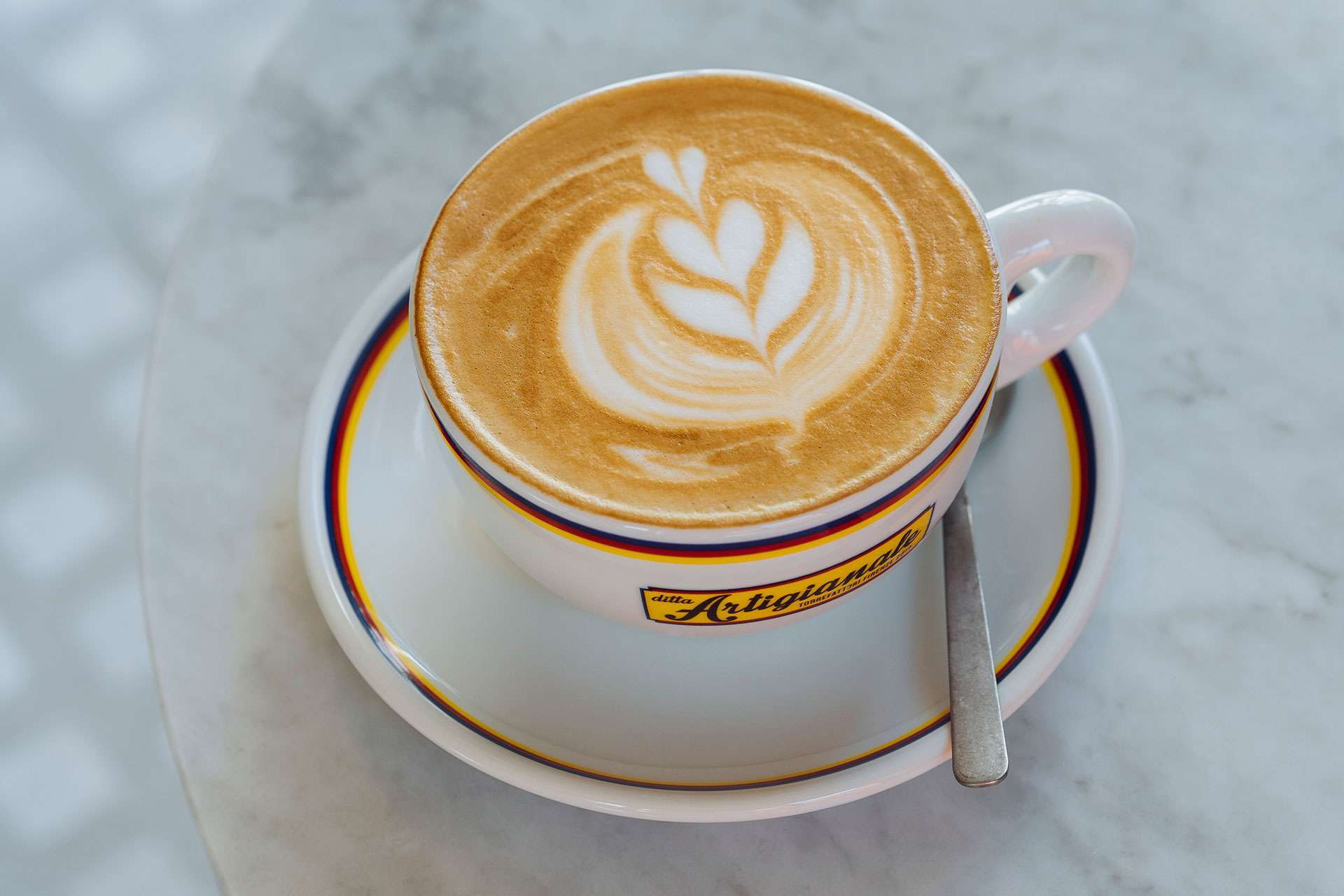Italy has a unique bond with coffee, a relationship that spans centuries. Coffee is a central part of everyday life in Italy. It isn’t just about quality and flavour either, it’s an important and social past-time. From morning cappuccino to a shot of espresso on the go, there is a rich variety of Italian coffee to try, but these are also served with certain ground rules.
We sat down with coffee specialist, Simone Amenini, manager of the Scuola del Caffè in Florence, to find out more about Italian coffee culture, etiquette and customs. Read this interview for top tips on how you can drink coffee like a local when you stay at one of our luxury villas near Florence.
TN&M: At the Scuola del Caffe you treat guests to the history and botany of coffee in Italy in a number of hands-on workshops. How much does this history explain why Italy has such a special relationship with coffee?
There is no specific historical reason that influenced the approach to coffee in our culture, intended as a quick break or a moment of conviviality. However history has certainly influenced consumption habits, making them almost unique compared to the rest of the world.
TN&M: And what is it, do you think, that makes Italian coffee culture so unique?
Surely in Italy we know how to make an experience unique. What is different in our tradition is the approach we take to coffee. That character of sacredness in preparation and wellbeing in sharing it. Coffee drinking is a more traditional ritual here.
TN&M: Why do you think coffee is such an important aspect of Italian culture?
Coffee in Italy can take on two different connotations. It can be a moment of fleeting pause, or it can be a moment of socializing. In Italy, coffee evokes intimate moments in our domestic life as well as moments spent with friends. In Italy we always meet in front of a coffee. What happens in Italy is that, in the end, one hardly drinks coffee for the sake of tasting it. Coffee is almost always an excuse.
TN&M: Any top tips for ordering coffee out in Italy?
When ordering an espresso, consumption must be immediate, within one minute of extraction. This is to avoid increasing the feelings of bitterness in tasting. Same thing for the cappuccino. In Italy, the preparation temperatures and the volume of the cup are optimized for fast consumption, to fully capture the nuances of taste and the balance between espresso and milk. This is perhaps the main difference with the rest of the world, where milk-based products are often prepared at higher temperatures to allow for slower and longer consumption. However this is really to the detriment of the perception of taste.

TN&M: What are your thoughts on Il galateo del Caffè (“Coffee etiquette”)? Should cappuccino strictly be a morning drink in Italy?
Not really. This tendency has certainly developed in Italy to tie cappuccino only to breakfast. We are not used to seeing it on our tables or associating it with main meals, but there is nothing wrong with an afternoon cappuccino. What is inconceivable for an Italian is the idea of a hot, milk-based drink consumed with a sandwich or accompanied by a main meal.
TN&M: What is the best way to enjoy espresso?
If the espresso is of good quality (selected raw materials, correct preparation procedures, properly cleaned machine, correct maintenance), it should be drunk without sweetening it. And preferably without adding milk.
The first step is visual analysis: the presence of an excessively thick layer of cream is not necessary, but it must be elastic, of an intense brown colour and preferably with darker streaks on the surface. Then the cup should be brought close to the nose to savour its aroma. And, at the same time, the drink should be stirred with a teaspoon. This will break the surface cream, allowing the aromas to be released even more intensely. By stirring the drink we can have a much more homogeneous sip, as the extracted substances tend to stratify in the cup. The ideal would be to divide the espresso into 3 sips, evaluating how the gustatory sensations vary.
TN&M: Moka or machine? What is your go-to way of making coffee?
At home I always prepare coffee with the filter method, choosing between Aeropress, V60 or Chemex. But if I had to choose between the mocha and the espresso machine, I would never choose the mocha, because technically for me it is the wrong type of extraction and that does not give the right value to the coffee used.
TN&M: The Moka has become such a central part of Italy’s coffee identity though. What are your top tips for perfecting using the moka?
First of all, the main thing I explain when I talk about the mocha is that I would never recommend an extraction of coffee in a moka pot, as it does not enhance the product but rather spoils it. If you are using the Moka, the starting point is certainly water. It is advisable to use bottled water with a low fixed residue. Furthermore, it is necessary to avoid creating a heap of ground coffee when inserting it into the filter. This will lead to an unbalanced and uneven extraction. You must never keep the flame burning until the end either, but turn it off when the liquid extracted has passed halfway through the upper chamber.
TN&M: What would you say the biggest misconception is that most people have when making coffee at home?
The main mistake is not knowing what to really evaluate in a coffee. So it is thought that a very strong and intense extraction is a virtue, rather than a defect.
Uncover artisan Italian coffee culture at the Scuola del Caffè in Florence
Ditta Artigianale is a specialty coffee roaster in the centre of Florence and is the resulting vision of Francesco Sanapo, multi-award winning barista and coffee taster, and Patrick Hoffer. Since opening their own micro-roastery in 2013, Ditta Artigianale have gone on to open several coffee shops in Florence. The Scuola del Caffè on Via Giosuè Carducci is their biggest yet and is where Simone Amenini works as manager, leading a rich variety of hands-on coffee workshops.
Uncover the secrets that make the Italian approach to coffee so unique when you book the Ditta Artigianale Italian Coffee Culture Experience. Simone will deepen your understanding of the history and botany of coffee in Italy and guide you on a tasting of espresso and moka coffee. Not only is an immersive workshop at the Scuola del Caffè a fascinating way to discover the world of Italian coffee culture, it is the perfect way to see Florence off the beaten path.
